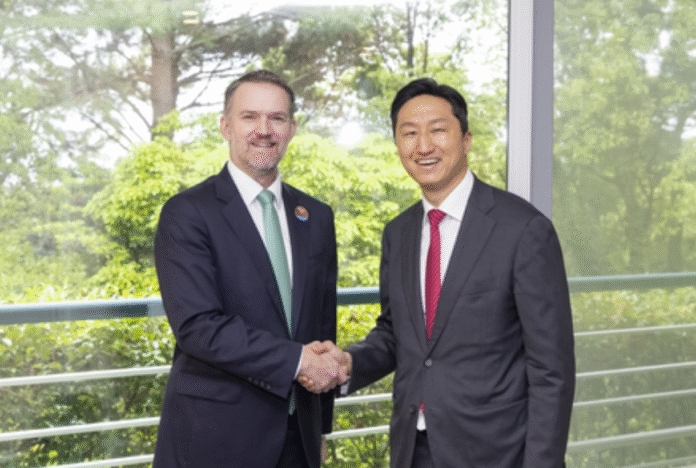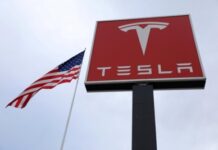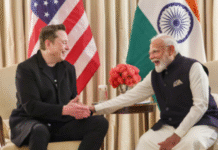Seoul— HD Hyundai CEO Chung Ki-sun met with U.S. Trade Representative (USTR) Jamieson Greer this week to discuss potential collaboration in the shipbuilding sector, the South Korean conglomerate announced Friday.
The meeting took place on the sidelines of the Asia-Pacific Economic Cooperation (APEC) trade ministers’ summit, held on Jeju Island from Thursday to Friday. According to the company, this marked the first official dialogue between the USTR and South Korea’s shipbuilding industry—a significant step toward strengthening bilateral industrial ties.
During the meeting, Chung emphasized the importance of deepening cooperation through joint technology development, streamlined manufacturing processes, and workforce training initiatives.
“We greatly value the United States’ efforts to revitalize its shipbuilding industry,” said Chung. “HD Hyundai is ready and committed to contributing our expertise wherever it is needed.”
In response to U.S. concerns about over-reliance on Chinese cranes at American ports, Chung introduced HD Hyundai Samho Heavy Industries, a group affiliate capable of manufacturing port cranes. He stressed the strategic need to diversify the U.S. port equipment supply chain and proposed closer cooperation between South Korea and the United States as a solution.
Separately, General Motors’ South Korean arm, GM Korea, made headlines as CEO Hector Villarreal visited the company’s Changwon plant, located about 185 miles southeast of Seoul. The visit comes amid rising concerns about a possible GM pullout from South Korea due to recent U.S. tariff changes and faltering local operations.
In a press statement, GM Korea said Villarreal’s visit was intended to boost employee morale and reinforce on-site leadership during a period of uncertainty. Speculation about GM’s future in the country has intensified following the April implementation of a 25% U.S. tariff on imported vehicles. The automaker has also faced criticism for lacking new model launches and declining sales performance.
GM Korea exports roughly 85% of its vehicles to the U.S., making it especially vulnerable to the new tariff regime. The company has not officially commented on any potential plans to scale back its South Korean operations. (Source: IANS)







